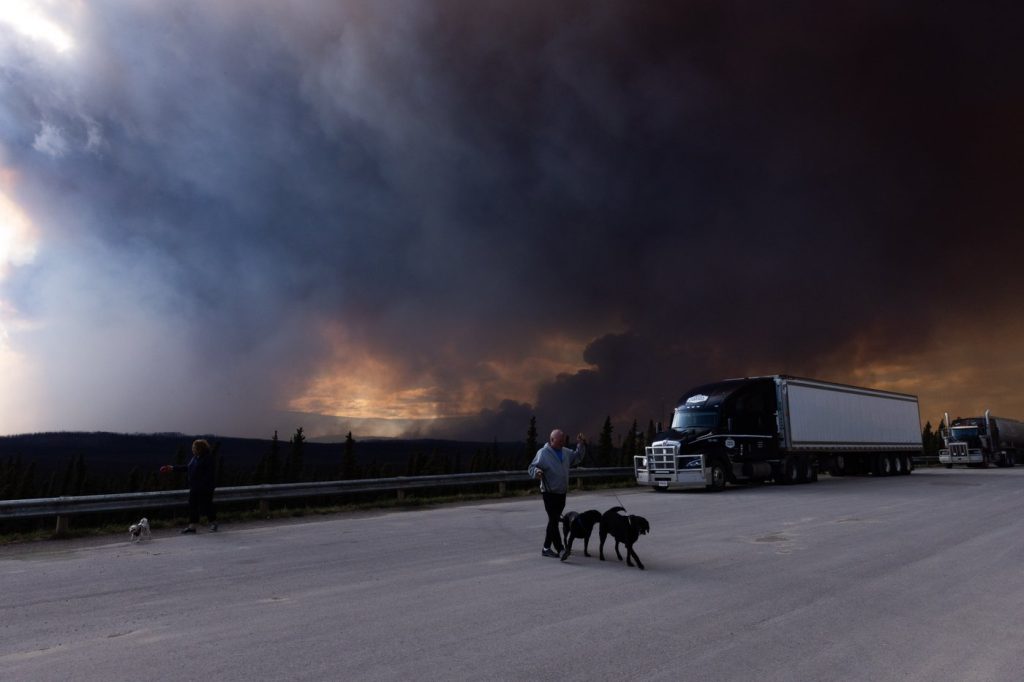Two recent studies have highlighted the impact of climate change on mental health among Canadians. According to a national study published in an academic journal, about 2.3 per cent of people in Canada experience climate change anxiety at clinically significant levels, causing noteworthy distress and disruption to their daily lives.
The study indicates that severe manifestations of climate anxiety are more prevalent among individuals who have directly experienced the impacts of climate change, including women, younger generations, inhabitants of Northern Canada compared to those in the South, urban residents versus those living in rural areas, and people with lower incomes. Importantly, Indigenous communities exhibited the highest rates of severe climate anxiety, nearing 10 per cent, potentially due to their direct encounters with climate challenges such as wildfires, melting sea ice, and the changing climate affecting their lifestyles and worldviews.
A second study, published late last month, focused on Canadian teenagers and revealed that a significant 37 per cent of respondents felt their mental health was affected by climate change. The ongoing crisis, largely driven by emissions from fossil fuel consumption, has tangible implications for public health—illustrating concerns ranging from deteriorating air quality due to intensifying wildfires to the increased spread of diseases by insects thriving in warmer conditions.
Despite these findings, there is a notion that the mental health effects of climate change may be underestimated across Canada. A 2022 report for the Public Health Agency of Canada pointed out that insufficient recognition of climate anxiety could leave public health systems underprepared to address this growing concern.
Climate anxiety encapsulates the distress experienced over the looming threats posed by climate change, often rooted in personal experiences with extreme weather events or exposure to climate-related discourse. While it is natural and sometimes even seen as a healthy reaction to feel worried about climate change, severe anxiety can disrupt daily routines and may resemble symptoms found in generalized anxiety disorders, such as obsessive thoughts, a sense of dread, and difficulties with concentration or sleep.
The study that quantified climate anxiety in Canada involved a survey of 2,476 respondents, employing a widely recognized climate anxiety scale. Participants were queried on various aspects related to how climate change influences their daily lives, including sleep disruptions, personal reactions to climate change, and overall impacts on their routines. A clinically meaningful level of anxiety was determined by whether respondents experienced these symptoms at least occasionally.
Notably, while 2.3 per cent of respondents reported severe manifestations, around 15 per cent indicated experiencing at least one symptom of anxiety connected to climate change. When comparing this prevalence with other countries, the authors noted that climate change anxiety appears to be less common in Canada than in nations like Australia (9.4 per cent), the United Kingdom (3.6 per cent), and various French-speaking regions in Europe and Africa (11.6 per cent).
The comparison brings forth challenges, particularly regarding the definitions of climate anxiety. The authors referenced a recent Australian study that suggested the thresholds for defining "clinical distress" may be too high, implying that the Canadian study might be underrepresenting the actual prevalence and severity of climate anxiety.
The teenage mental health study approached the topic differently by surveying over 800 Canadians aged 13 to 18, asking them directly if they felt climate change impacted their mental health. Among those who responded affirmatively, about 25 per cent indicated that their mental health was affected "a lot," while others said "a little." The teenagers provided open-ended responses, highlighting feelings of uncertainty about the future, anxiety linked to wildfire seasons, and a deep sadness stemming from perceived inaction by powerful entities in addressing climate issues.
For instance, one 18-year-old girl from New Brunswick expressed her frustration and sadness regarding corporations prioritizing profit over environmental health. These personal accounts underline the deeply felt concerns younger generations are experiencing as they grapple with the realities of climate change.











